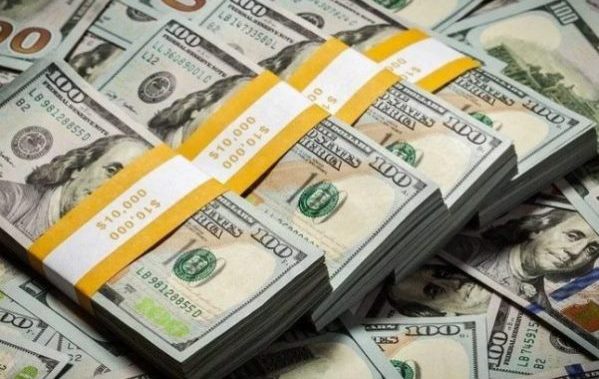Nigeria’s foreign reserves on Wednesday, surged to $35.05 billion being the highest since President Bola Tinubu assumed office last year.
This is data according to data obtained from the Central Bank of Nigeria (CBN) website.
Join our WhatsApp ChannelPrime Business Africa reports that the last time the foreign reserve reached this level was on 30th May 2023, a day after Tinubu’s inauguration when it stood at $35.09 billion.
Thereafter, the Tinubu administration’s FX unification policy in June 2023 came with what the CBN governor, Dr Olayemi Cardoso, called “short-term challenges,” leading to a decrease in the foreign reserves to about $34 billion as the naira depreciated by more than 100 percent. The reserve fluctuated between $32 billion and $33 billion.
However, it has continued to rise since May this year, reaching $34.77 billion on Friday, 5 July 2024 before the latest one.
Analysts have attributed the latest increase in foreign reserves to recent foreign loans obtained from multilateral institutions. Nigeria recently secured a $2.5 billion loan from the World Bank to finance critical projects to stabilize the economy.
READ ALSO: Nigeria’s FX Reserves Rise To $34.66bn, Highest Level In 13 Months
Also, the country reportedly obtained another $500 million World Bank loan some months back to boost the electricity distribution sector.
Also, a recent report by the National Bureau of Statistics (NBS) revealed that Nigeria’s capital importation rose by 210.16% from $1.088.48 million in the fourth quarter of 2023 to $3.37 billion in the first quarter of 2024.
Naira Depreciation persists
Despite the increase in the foreign reserves, the naira has continued to witness depreciation. The Nigeria Autonomous Foreign Exchange market (NAFEM) data published on the FMDQ Securities and Exchange platform indicate that the local currency further depreciated to N1,562/$1 on Wednesday at the official market. This represents N30 or 1.96 per cent depreciation when compared to the previous day’s closing rate of N1,532/$1.
The naira which was declared the world’s best performing currency in April has sharply dropped in valued. A recent Bloomberg report captured the naira as the worst-performing currency globally in the first half of 2024, attributing it to devaluation that came with the floating of the currency in the foreign exchange market in 2023 and also inadequate supply of dollar to the forex market among others.
Victor Ezeja is a passionate journalist with six years of experience writing on economy, politics and energy. He holds a Masters degree in Mass Communication.

















Follow Us